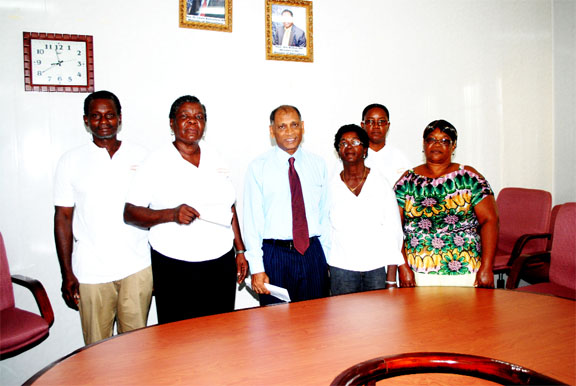Up to 65 farmers’ groups from various regions of the country will benefit from grants totalling around $120 million and loans totalling $38 million through a US$6 million loan/grant facility extended to the Government of Guyana by the Inter-national Fund for Agricultural Development (IFAD) under the Rural Enterprise and Agricultural Development (READ) project.
The project, which is being implemented by the Agricul-ture Ministry’s Agriculture Sector Development Unit (ASDU) with direct supervision from IFAD and which is currently being implemented in Regions 2, 3, 4, 5, 6 and 10, will allocate funding of up to $6 million to individual beneficiaries. The Institute of Private Enterprise Develop-ment (IPED) has been designated manager of the project.

A Ministry of Agriculture functionary attached to the READ project told Stabroek Business that the project is divided into two components which address market development and rural enterprise development, respectively. The official said the single greatest need expressed by the farmers across the regions was for significantly enhanc-ed market access and while the Agriculture Ministry had done a great deal of work in the project component areas, even more work needed to be done to establish the capacity that will result in the creation of viable economic enterprises and industries.
Meanwhile, the official told Stabroek Business that the identification and capturing of export markets will prove a challenge for the project since it was recognised that securing new markets required an understanding of those markets and “making major adjustments on the supply side.”
A week ago, at a ceremony held to mark the handing over of several loans and grants to seven farming groups comprising scores of farmers, Agriculture Ministry Dr Leslie Ramsammy said government was impatient over the fact that the empowerment of local farmers was not moving at a sufficiently rapid pace.
Ramsammy told the farmers to seek to create conditions of sustainability in their respective agricultural projects in order to justify the grants and loans allocated under the READ project. “If at the end of the period of support you are not in a position to continue you have failed,” Ramsammy told the recipients.
Stabroek Business has been informed that of the 65 groups identified to benefit from grants and loans under the READ project, 25 are in a state of preparedness. Forty groups are scheduled to receive their funding this year while a further 25 are to be funded next year.
READ is a six-year project which has as its principal objective the improvement of the living conditions of rural households, especially small-scale producers and vulnerable groups including women-headed households, youths and Amerindian communities.





